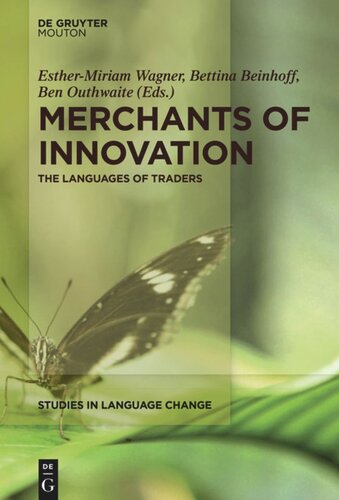

Most ebook files are in PDF format, so you can easily read them using various software such as Foxit Reader or directly on the Google Chrome browser.
Some ebook files are released by publishers in other formats such as .awz, .mobi, .epub, .fb2, etc. You may need to install specific software to read these formats on mobile/PC, such as Calibre.
Please read the tutorial at this link: https://ebookbell.com/faq
We offer FREE conversion to the popular formats you request; however, this may take some time. Therefore, right after payment, please email us, and we will try to provide the service as quickly as possible.
For some exceptional file formats or broken links (if any), please refrain from opening any disputes. Instead, email us first, and we will try to assist within a maximum of 6 hours.
EbookBell Team

4.7
56 reviewsTraders around the world use particular spoken argots, to guard commercial secrets or to cement their identity as members of a certain group. The written registers of traders, too, in correspondence and other commercial texts show significant differences from the language used in official, legal or private writing. This volume suggests a clear cross-linguistic tendency that mercantile writing displays a greater degree of language mixing, code-switching and linguistic innovations, and, by setting precedents, promote language change.
This interdisciplinary volume aims to place the traders' languages within a wider sociolinguistic context. Questions addressed include: What differences can be observed between mercantile registers and those of court or legal scribes? Do the traders' texts show the early emergence of features that take longer to permeate into the 'higher' varieties of the same language? Do they anticipate language change in the standard register or influence it by setting linguistic precedents? What sets traders' letters apart from private correspondence and other 'low' registers? The book will also examine bilingualism, semi-bilingualism, reasons for code-switching and the choice of particular languages over others in commercial correspondence.